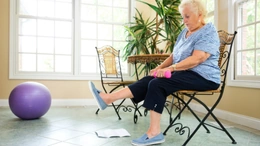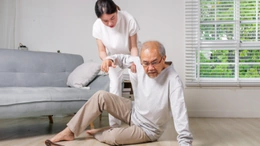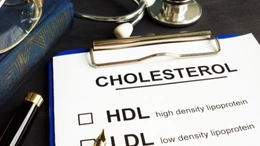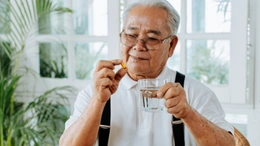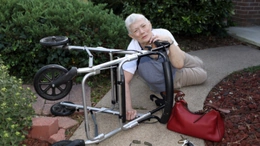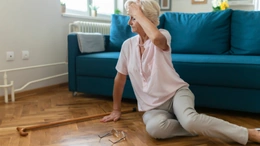Managing The Side Effects Of Blood Thinners In Elderly: Tips From Geriatric Experts

Blood thinners offer protection to the heart but come with a plethora of side effects, especially with advancing age. Medicines do act differently with aging, and what may seem trivial might prove immense to you. You might notice bruises, bleeding gums, or dizziness after starting these pills.
Geriatric experts know the safest tips to help you stay steady and well. With the right care, you can avoid harm and keep your life active. This guide shares expert-backed tips and simple steps that protect your health without adding stress.
Side Effects Of Blood Thinners In Seniors & How To Manage Them
Blood thinners are used to prevent strokes, heart attacks, and dangerous clots in older people. But side effects develop into the inconveniences of daily life.
Seniors bruise easily or bleed from trivial cuts. Others present a feeling of dizziness or tiredness, while others experience blood from their noses or gums.
These effects may seem small, but they can turn serious without care. Knowing how to spot and manage them early is key. With the right tips, you can stay safe, feel better, and live with fewer worries. This guide shares expert ways to handle the side effects of blood thinners in elderly.
Bruising – Apply Cold Packs And Wear Long Sleeves
As you get older, your skin gets thinner and more delicate. Blood thinners make this worse. A small bump can turn into a big bruise. The bruise might hurt or spread fast. You may notice purple or blue marks on your arms or legs.
One way to prevent this is to cover your skin with long-sleeved clothing and soft materials. Say no to clothes that provide friction and pressure.
If you get a bruise, a cold pack can be helpful, as you can apply it directly and gently to your bruise for 10-15 minutes. It helps reduce swelling and prevents blood from escaping through the skin.
Nosebleeds – Use Saline Spray And A Humidifier
Dry air can cause your nose to bleed, especially if you’re on blood thinners. Your nose has small blood vessels that can break easily. Even blowing your nose too hard can lead to bleeding.
To stop this, keep your nose moist. Use a saline spray several times a day. You can buy this at any pharmacy. It’s gentle and safe for daily use.
Bleeding Gums – Brush Softly With A Gentle Toothbrush
Blood thinners can make your gums bleed when brushing or flossing. This is common in older adults. It may happen more often if you have gum disease or wear dentures.
To prevent this, switch to a soft-bristle toothbrush. Brush gently in small circles. Don’t press too hard on your gums, floss slowly, and avoid snapping the floss.
You can also rinse with a gentle, alcohol-free mouthwash to soothe your gums. Visit your dentist regularly for cleanings and checkups. Healthy gums bleed less and stay stronger over time.
Blood In Urine/Stool – Call Your Doctor Right Away
If you see red or brown in your urine or dark, tarry stool, don’t wait. These are signs of internal bleeding. Blood thinners can increase this risk, especially if you also take painkillers like ibuprofen.
Such bleeding is painless but it is serious. Call your doctor immediately if these are noticed. Bring along a list of all your medications when going for a visit.
The doctor may test you or change the dosage of your blood thinners. Never ignore such signs, for bigger problems could arise due to neglect.
Dizziness – Stand Up Slowly And Carefully
There are times these blood thinners act and somehow lower the pressure in your veins. Standing dizzy spells or lightheadedness can ensue with this. This is equally risky for seniors, whose chances of falling and injuring themselves are increased.
Having grown cautious, remember to get up slowly from the bed or from the chair. Sit down for a few seconds first at the edge, then begin to hold on with the other hand to something stable nearby, wear shoes that will not slip, and try to keep walkways clear.
If the dizziness is frequent, tell your doctor. You may need a different medication or dose. Dizziness is not something you should ignore.
Heavy Bleeding – Talk To Your Doctor To Adjust Dose
Some people bleed more than others while on blood thinners. A small cut may bleed longer than normal. You might finish up with heavy periods, bleeding after brushing, or random bleeding from the skin.
This definitely does not mean that you must stop the medication. However, it may imply that your dose is too high. Your doctor can check your blood levels and make changes accordingly.
Don’t change the dose on your own. Also, avoid over-the-counter pain relievers unless your doctor says they’re safe. These can make bleeding worse.
Stomach Pain – Take Medicine With Food
Blood thinning medications can disturb the stomach lining, causing pains, bloating, or burning sensations. Older people with sensitive stomachs or previous ulcers may experience this more.
To prevent this, take your medication with food, not on an empty stomach. A juiced fruit or a light meal will suffice. Do not go for spicy or greasy foods that choke your stomach.
Tell your doctor if the pain doesn’t go away. They may suggest a stomach-protecting medicine. Always follow your medicine timing and food advice carefully.
Headaches – Don’t Self-Treat, Get Checked Quickly
Headaches can be harmless, but on blood thinners, they may signal something more serious. A sudden, strong headache can mean bleeding in the brain. This is rare but dangerous.
Don’t ignore a new or different headache. Avoid taking aspirin or ibuprofen unless told by your doctor. These can thin your blood even more. Instead, rest and monitor how you feel.
Tiredness – Eat Well And Stay Hydrated
You may feel tired more often while on blood thinners. This could be from mild blood loss or from how the medicine affects your body. Seniors may also feel weak due to low iron or poor nutrition.
To tackle exhaustion, make sure to hydrate with water and snack on good food. Well-stocked in iron are spinach, beans, and lean meat. Very short walks can also keep your energy up.
If your tiredness worsens, get a blood test. Your doctor can check for anemia or other problems. Don’t just sleep it off; instead, find the cause.
Shortness Of Breath – Get Emergency Care Fast
Do not delay in emergencies if you sense a sudden drop in breath. This could be a red flag that either a clot has formed in the lungs or bleeding has occurred around the heart. Both require emergency intervention.
Call for help immediately or go to the hospital. Sit upright and stay calm while you wait. Do not lie down. Let medical staff know you are on blood thinners. They will act fast to check your heart and lungs.
Conclusion
Blood thinners are important, especially for older adults at risk of stroke or heart problems. But they do come with side effects, many of which can be serious if ignored. Understanding these side effects of blood thinners in elderly helps you stay safe, active, and independent.






